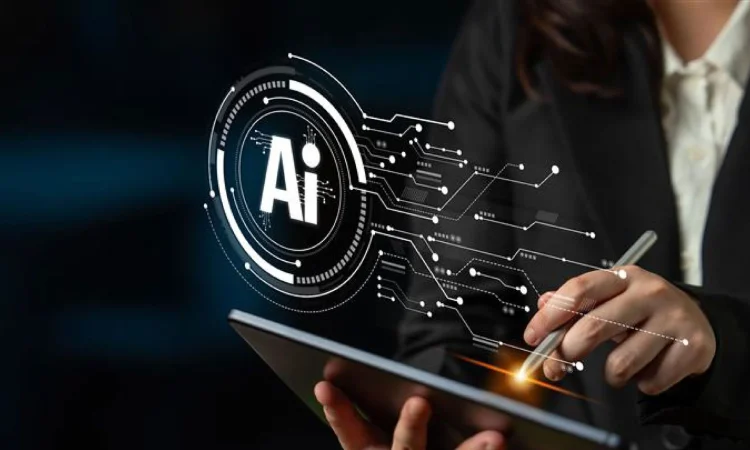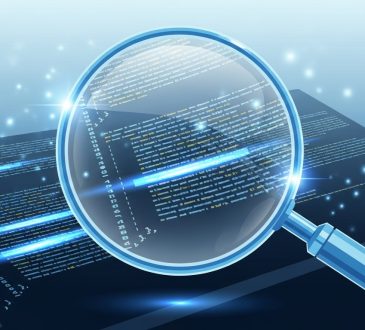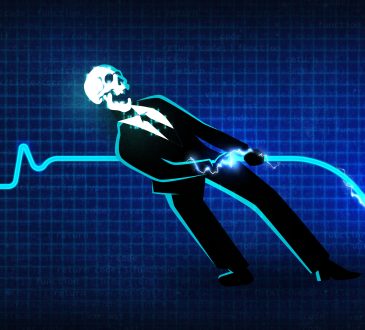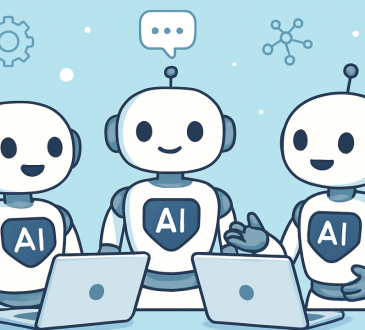
Artificial Intelligence (AI) has moved far beyond being a futuristic idea. Today, it’s a powerful force reshaping industries across the globe. From healthcare to finance, manufacturing to creative arts, AI isn’t just a technological advantage anymore—it’s a strategic necessity for organizations that want to stay competitive in an increasingly complex world.
As 2025 unfolds as a year of rapid AI adoption, its impact is more widespread and profound than ever. Let’s explore how AI is transforming industries today.
Healthcare: Revolutionizing Diagnosis and Treatment
Healthcare has been one of the earliest and most transformative adopters of AI. AI-powered diagnostic tools can now analyze medical images with astonishing accuracy—often on par with experienced radiologists. Machine learning algorithms help detect early signs of conditions like cancer, heart disease, and neurological disorders, allowing doctors to intervene sooner and improve patient outcomes.
Beyond diagnosis, AI is reshaping treatment planning. Predictive analytics help doctors identify which therapies are likely to work best for individual patients by analyzing genetic data, medical history, and lifestyle factors. Hospitals are also integrating AI-powered chatbots and virtual assistants to manage appointments, answer patient questions, and provide preliminary guidance, reducing administrative burdens significantly.
Finance: Smarter Decisions and Risk Management
AI is revolutionizing the finance sector. Banks and investment firms now rely on AI-driven analytics to assess credit risk, detect fraud, and optimize investment portfolios. By processing vast amounts of data in real-time, AI uncovers patterns humans might miss, enabling faster and more accurate decision-making.
AI chatbots and virtual financial advisors also enhance customer experiences by offering personalized recommendations and 24/7 support. Additionally, algorithmic trading powered by AI predicts market trends and executes trades at incredible speeds, improving profitability while minimizing human error.
Manufacturing: Efficiency and Quality at Scale
The manufacturing industry is leveraging AI to boost efficiency, reduce waste, and improve quality. Smart factories equipped with AI sensors and robotics monitor machinery, detect anomalies, and predict maintenance needs before breakdowns occur. This predictive maintenance minimizes downtime and increases operational efficiency.
AI-driven computer vision systems inspect products at a microscopic level, catching defects instantly. Supply chains are also optimized through AI, which predicts demand fluctuations, manages inventory more efficiently, and reduces logistics costs. For modern manufacturing, AI has become indispensable.
Retail: Personalizing Customer Experiences
Retailers are turning to AI to better engage customers and drive sales. AI analyzes consumer behavior and purchase history to deliver personalized recommendations, dynamic pricing, and targeted marketing. Online platforms can predict what products a customer is likely to buy, improving conversion rates and marketing effectiveness.
Inventory management is also transforming. AI helps forecast demand, prevent stockouts, and optimize warehouse operations. Even physical stores benefit: AI-driven checkout systems, smart shelves, and augmented reality fitting rooms are making shopping faster, more interactive, and enjoyable.
Transportation and Logistics: Smarter Mobility
AI is changing transportation and logistics. Autonomous vehicles, including self-driving trucks and delivery drones, are increasingly being tested and deployed in select regions. AI algorithms help these vehicles navigate safely, reduce human error, and optimize routes for fuel efficiency and timely deliveries.
Logistics companies also use AI to streamline supply chains. Predictive analytics identify bottlenecks, optimize shipping routes, and manage fleet maintenance proactively. With growing demand for faster, reliable delivery, AI is central to modern transportation strategies.
Creative Industries: Expanding the Boundaries of Art and Media
AI is making its mark in creative fields, challenging traditional views of human creativity. In music, AI can compose original tracks, assist in sound engineering, and generate personalized playlists. In visual arts, AI tools create digital artworks, enhance images, and automate video editing.
Media companies use AI for content curation and recommendation systems, delivering highly relevant news and entertainment. AI is also being applied to scriptwriting, game development, and animation, giving creators new ways to experiment and streamline production. While debate continues on AI’s role in creativity, its potential is undeniable.
Challenges and Ethical Considerations
Despite its transformative power, AI adoption brings challenges. Data privacy and security remain major concerns, particularly in healthcare and finance. Ethical questions about accountability, algorithmic bias, and job displacement must also be addressed.
Regulatory frameworks are evolving, but businesses must adopt responsible AI practices. Ensuring transparency, minimizing bias, and maintaining human oversight are essential to building trust and maximizing AI’s benefits across industries.
The Road Ahead
AI’s influence is only set to grow. Emerging technologies like generative AI, advanced natural language processing, and AI-powered robotics are poised to disrupt traditional business models even further. Industries that embrace AI thoughtfully, integrate it into strategic decision-making, and prioritize ethics will likely emerge as leaders in the new digital economy.
AI is more than a tool—it’s a catalyst for transformation, driving innovation, efficiency, and creativity. Staying informed about AI’s latest developments is no longer optional; it’s essential for businesses and individuals aiming to stay ahead in 2025 and beyond.
Conclusion
From healthcare and finance to manufacturing, retail, and creative sectors, AI is reshaping the way industries operate. Its ability to analyze large datasets, automate complex processes, and deliver actionable insights is changing both business and consumer experiences.
While challenges like ethics and governance remain, AI’s trajectory is unmistakably upward. In 2025, we are at a pivotal moment: AI, when used thoughtfully, can enhance human potential, drive economic growth, and transform industries in ways once thought unimaginable. Staying ahead in this evolving landscape is no longer optional—it’s essential.




